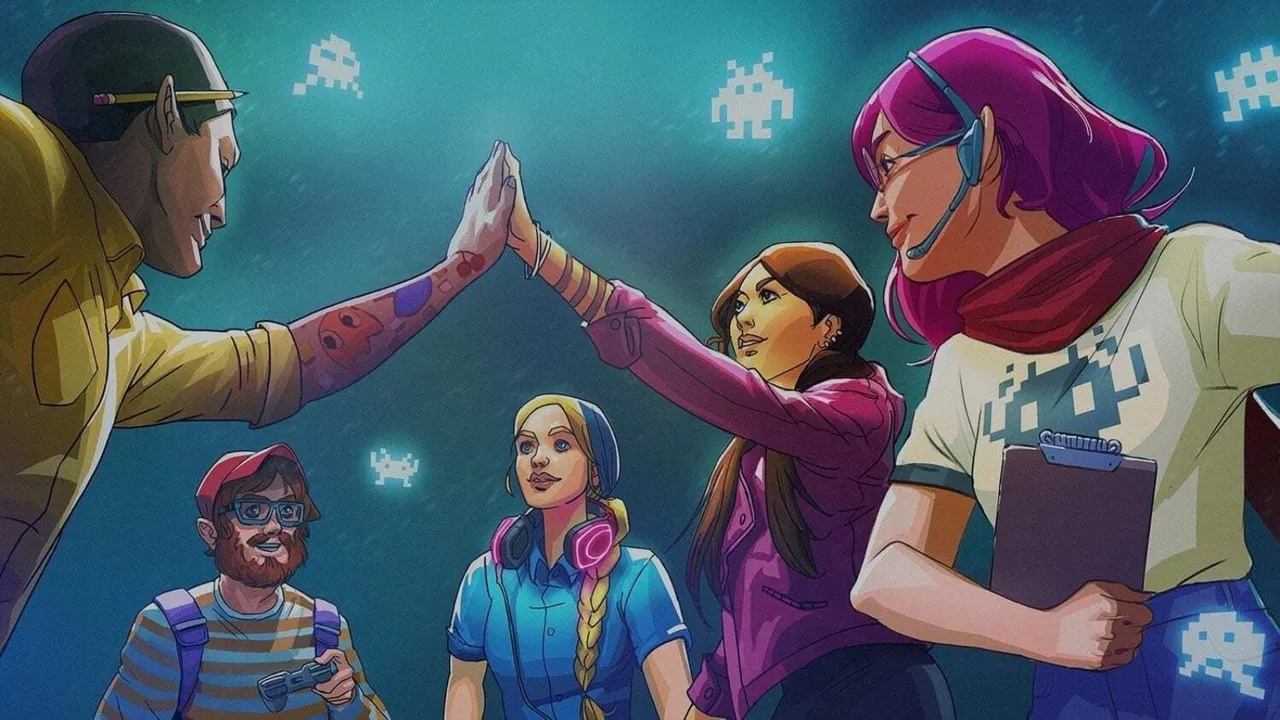An exploration of some of the most popular game careers

Introduction
The video game industry has come a long way since the days of Pong and Pac-Man. Today, it is a booming, multi-billion-dollar market, offering a wide range of career opportunities for those with a passion for gaming. This article delves into some of the game careers available and provides insights into what each role entails, the skills required, and how to break into the industry.
The types of game careers available
Game Designer: Game designers are responsible for crafting the overall vision of a game. They conceptualize gameplay mechanics, characters, storylines, and level designs. To succeed as a game designer, you'll need strong creative skills, problem-solving abilities, and an understanding of game design principles.
Game Programmer: Programmers bring game designs to life by writing the code that powers gameplay, physics, graphics, and artificial intelligence. Proficiency in programming languages like C++, C#, and Python is essential, along with a solid foundation in computer science and mathematics.
Game Artist: Game artists create the visual elements of a game, including characters, environments, and user interfaces. Successful game artists possess strong drawing and digital art skills, as well as an understanding of color theory, composition, and 3D modeling.
Game Animator: Animators bring game characters and environments to life through movement and visual effects. A strong foundation in animation principles, 3D modeling, and rigging is necessary for this role, along with proficiency in software like Autodesk Maya and Adobe After Effects.
Audio Designer: Audio designers create the music, sound effects, and dialogue for games. They must have a deep understanding of audio production, sound design, and music composition, as well as familiarity with audio software like Pro Tools and Logic Pro.
Game Producer: Producers oversee the entire game development process, ensuring projects are completed on time and within budget. They coordinate teams, manage resources, and communicate with stakeholders. Strong organizational, leadership, and communication skills are essential for success as a game producer.
Game Tester: Game testers play a critical role in ensuring that games are free of bugs and glitches. They must be detail-oriented, patient, and possess excellent communication skills to report issues effectively.
Localization Specialist: Localization specialists adapt games for different regions, making sure that language, cultural references, and other elements are appropriate for each market. Strong language skills and cultural knowledge are necessary for success in this role.
Breaking into the industry
Regardless of the game career path you choose, breaking into the industry requires dedication, persistence, and a willingness to learn. Here are some steps to help you get started:
Gain relevant education and training: Consider pursuing a degree or certification in game development, computer science, or a related field to build a strong foundation in the skills needed for your chosen career path.
Create a portfolio: Showcase your skills and projects through a well-crafted portfolio. This will demonstrate your abilities to potential employers and help you stand out from the competition.
Network: Attend industry events and engage with professionals in your field on LinkedIn and X to build connections and learn about job opportunities.
Gain experience: Take on internships, freelance work, or personal projects to build your experience and skills.
Stay up-to-date: Keep up with industry news, trends, and advancements in technology to stay competitive in the job market.
Conclusion
The video game industry offers a diverse range of career paths for those passionate about gaming. With the right combination of education, experience, and dedication, you can turn your love for video games into a rewarding and fulfilling career. Whether you're interested in game design, programming, art, or any of the other roles discussed in this article, there's a place for you in the ever-expanding world of game development. By investing in your skills, networking with industry professionals, and staying informed about the latest trends and technologies, you'll be well-equipped to embark on a successful journey in the gaming industry. Take the next step by clicking here to start searching for jobs that fit your location, experience level, and specialist skills.
-
 Landing a Summer Internship in the Video Game Industry: The Ultimate Quick Guide
Landing a Summer Internship in the Video Game Industry: The Ultimate Quick Guide -
 Entry-level Jobs in the Video Game Industry: The Ultimate Guide
Entry-level Jobs in the Video Game Industry: The Ultimate Guide -
 Junior-level Jobs in the Video Game Industry: The Ultimate Guide
Junior-level Jobs in the Video Game Industry: The Ultimate Guide -
 Intermediate-level Jobs in the Video Game Industry: The Ultimate Guide
Intermediate-level Jobs in the Video Game Industry: The Ultimate Guide -
 Senior-level Jobs in the Video Game Industry: The Ultimate Guide
Senior-level Jobs in the Video Game Industry: The Ultimate Guide -
 Getting into gaming: Strategies for landing your first game development job with Katherine Mould of Keywords Studios
Getting into gaming: Strategies for landing your first game development job with Katherine Mould of Keywords Studios -
 Art and Animation Jobs in the Video Game Industry: An Overview
Art and Animation Jobs in the Video Game Industry: An Overview -
 Business Operations Jobs in the Video Game Industry: An Overview
Business Operations Jobs in the Video Game Industry: An Overview -
 Communications and Marketing Jobs in the Video Game Industry: An Overview
Communications and Marketing Jobs in the Video Game Industry: An Overview -
 Content Creation Jobs in the Video Game Industry: An Overview
Content Creation Jobs in the Video Game Industry: An Overview -
 Game Design Jobs in the Video Game Industry: An Overview
Game Design Jobs in the Video Game Industry: An Overview -
 Game Development Jobs in the Video Game Industry: An Overview
Game Development Jobs in the Video Game Industry: An Overview